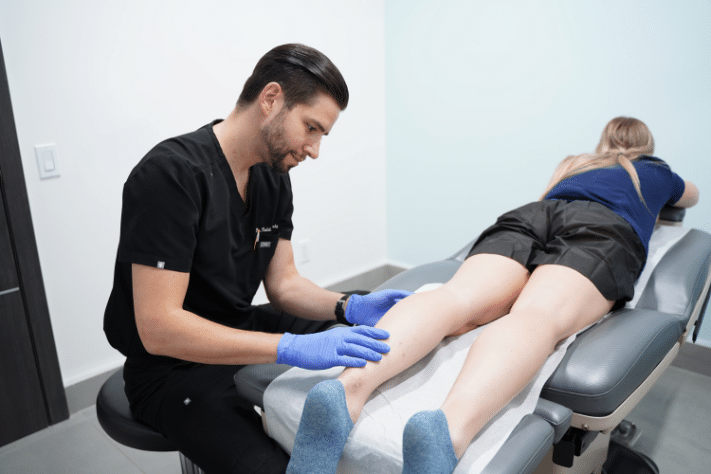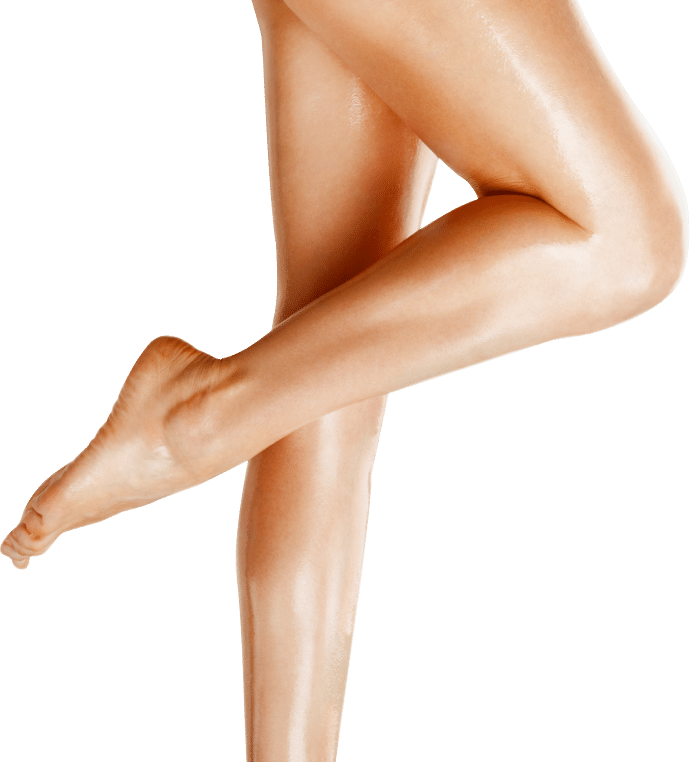Advantages of Knowing When to See a Vascular Doctor
When it comes to our health, it is crucial to understand when professional medical advice is necessary. In the realm of vascular health, recognizing the signs that indicate the need to see a vascular doctor can prevent complications and improve outcomes. This comprehensive guide explores the advantages of understanding when to see a vascular doctor, particularly focusing on conditions like varicose veins, and addresses common treatments available for vascular issues.
What Are Varicose Veins and When Should You Seek Treatment?
Varicose veins are swollen, twisted veins that are visible just under the surface of the skin. They most commonly occur in the legs but can appear in other parts of the body. These veins result from weakened valves within the veins that cause blood to pool rather than flow back to the heart. While varicose veins are often considered a cosmetic concern, they can lead to more serious health issues if left untreated.

Signs You Need to See a Vascular Doctor:
- Persistent Pain and Swelling: If you experience chronic pain or swelling in your legs, it is a significant indicator that you need to see a vascular doctor. These symptoms can signal underlying vascular problems that require medical attention.
- Changes in Skin Color or Texture: Darkening or thickening of the skin around the varicose veins can indicate more severe vascular issues. If you notice these changes, it’s time to consult a specialist.
- Ulcers or Sores on the Legs: Non-healing sores or ulcers on the legs are a severe sign of venous disease. Immediate consultation with a vascular doctor is necessary to prevent complications.
- Bleeding from Varicose Veins: Spontaneous bleeding from varicose veins is a medical emergency. Seek immediate medical help if this occurs.
Advantages of Early Diagnosis and Treatment
Early diagnosis and treatment of vascular issues, including varicose veins, offer numerous benefits. These advantages underscore the importance of knowing when to see a vascular doctor.
- Preventing Complications: Early intervention can prevent complications such as chronic venous insufficiency, deep vein thrombosis, and venous ulcers. By consulting a vascular doctor at the first sign of trouble, you can avoid these potentially serious conditions.
- Reducing Symptoms: Effective treatment of varicose veins can significantly reduce symptoms such as pain, swelling, and heaviness in the legs. This can improve your overall quality of life and enable you to maintain your daily activities without discomfort.
- Improving Aesthetic Appearance: For many people, varicose veins are a cosmetic concern. Early treatment can improve the appearance of your legs, boosting your confidence and self-esteem.
- Enhancing Mobility: Untreated varicose veins can lead to decreased mobility due to pain and swelling. Timely treatment can restore your ability to move comfortably, enhancing your overall physical health.
Does Varicose Vein Treatment Work?
Understanding the effectiveness of varicose vein treatment is essential for anyone considering these medical interventions. There are several treatment options available, each with its own set of advantages.
- Sclerotherapy: Sclerotherapy involves injecting a solution directly into the varicose veins, causing them to collapse and fade. This minimally invasive procedure is highly effective for small to medium-sized varicose veins and spider veins.

- Laser Treatment: Laser treatment uses focused light to damage the varicose veins, causing them to slowly fade and disappear. This treatment is particularly effective for smaller varicose veins and spider veins. It is a non-invasive option with minimal recovery time.
- Radiofrequency Ablation: This treatment involves using radiofrequency energy to heat and damage the vein wall, causing it to collapse and seal shut. Radiofrequency ablation is effective for larger varicose veins and offers a quick recovery time.
- Endovenous Laser Therapy (EVLT): EVLT is a minimally invasive procedure that uses laser energy to seal off varicose veins. This treatment is effective for larger veins and has a high success rate with minimal downtime.
- Vein Stripping and Ligation: In more severe cases, surgical options such as vein stripping and ligation may be necessary. This procedure involves removing or tying off the affected vein. While more invasive, it is highly effective for treating large varicose veins.
What to Expect from Varicose Vein Treatment
Understanding what to expect from how much does varicose vein treatment cost can help alleviate any concerns and ensure a smoother experience. Here’s a general overview of the treatment process:
Initial Consultation: During your initial consultation, the vascular doctor will evaluate your condition, discuss your symptoms, and review your medical history. Diagnostic tests, such as ultrasound, may be conducted to assess the severity of your varicose veins and determine the best treatment plan.
Treatment Procedure: Most varicose vein treatments are performed on an outpatient basis and involve minimal discomfort. Depending on the treatment method, you may receive local anesthesia to numb the treatment area. The procedure typically lasts between 30 minutes to an hour.
Recovery: Recovery times vary depending on the treatment method used. Minimally invasive procedures like sclerotherapy and laser treatments generally require little to no downtime. You may experience mild bruising or swelling, which should subside within a few days. For surgical treatments, recovery may take a bit longer, and you may need to limit physical activities for a short period.
Follow-Up Care: Regular follow-up visits with your vascular doctor are essential to monitor your progress and ensure the treatment’s success. Your doctor will provide specific aftercare instructions to promote healing and prevent recurrence.
Lifestyle Changes to Support Vascular Health
In addition to seeking medical treatment, making lifestyle changes can support vascular health and prevent the recurrence of varicose veins.
- Exercise Regularly: Engaging in regular physical activity can improve blood circulation and strengthen the muscles in your legs. Activities such as walking, swimming, and cycling are particularly beneficial.
- Maintain a Healthy Weight: Excess weight can put additional pressure on your veins, exacerbating varicose veins. Maintaining a healthy weight through a balanced diet and regular exercise can reduce this pressure and improve vascular health.
- Elevate Your Legs: Elevating your legs above heart level for short periods throughout the day can help reduce swelling and improve circulation. This is especially useful if you spend long periods standing or sitting.
- Wear Compression Stockings: Compression stockings apply gentle pressure to your legs, promoting blood flow and reducing the risk of varicose veins. Your vascular doctor can recommend the appropriate type and level of compression for your needs.
- Avoid Prolonged Standing or Sitting: If your job requires long periods of standing or sitting, take regular breaks to move around and stretch your legs. This can help prevent blood from pooling in your veins.
Conclusion: The Importance of Proactive Vascular Care
Recognizing when to see a vascular doctor and understanding the available treatment options for varicose veins are crucial steps in maintaining vascular health. Early diagnosis and treatment not only prevent complications but also enhance your quality of life by reducing symptoms and improving the appearance of your legs. By staying informed and proactive, you can ensure that your vascular system remains healthy and functional.
Incorporating lifestyle changes, such as regular exercise, maintaining a healthy weight, and wearing compression stockings, can further support vascular health and prevent the recurrence of varicose veins. Remember, your vascular health is an integral part of your overall well-being, and taking the necessary steps to address any issues early on can lead to better long-term outcomes.
If you experience any symptoms of vascular issues, do not hesitate to consult a vascular doctor. Early intervention can make a significant difference in your health and quality of life. With the right treatment and lifestyle adjustments, you can manage varicose veins effectively and maintain healthy vascular function for years to come.
Comments
Post a Comment